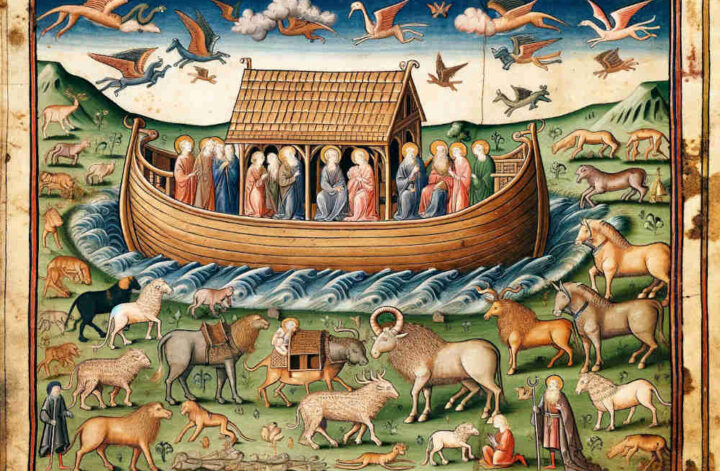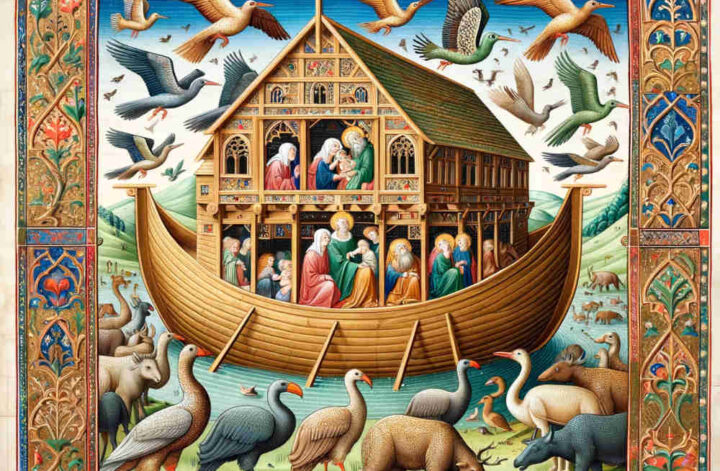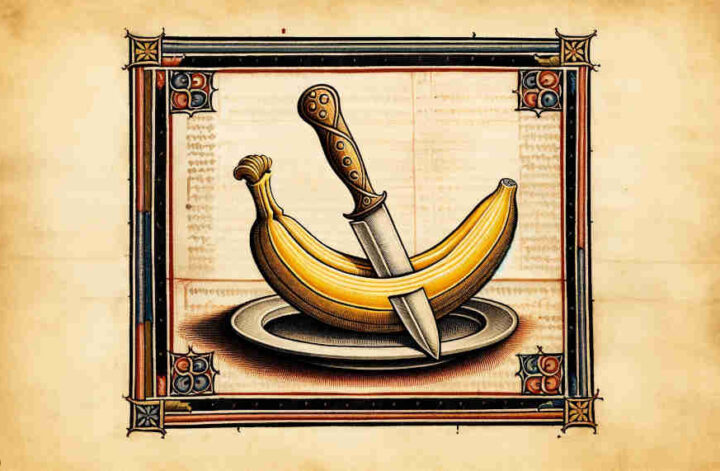Email from a reader: “Dear Rabbi Joshua, I’ve always been curious about the different religious perspectives on biblical stories. Do Jews believe in the story of Noah’s Ark as described in the Torah? Thanks for your insight. Sincerely, Robert Allen”
Dear Robert,
Your question about the Jewish belief in the story of Noah’s Ark is a thoughtful one, touching on how Jews interpret this significant biblical narrative. Let’s delve into the Jewish perspective.
The Story of Noah’s Ark in the Torah:
The story of Noah’s Ark is found in the Book of Genesis (chapters 6-9) in the Torah. It tells of God’s decision to bring a flood to cleanse the earth of its corruption, except for Noah, deemed a righteous man, and his family. God commands Noah to build an ark and save a pair of every animal species, leading to the survival of these beings through the great flood.
Jewish Belief and Interpretation:
In Judaism, the story of Noah’s Ark is generally accepted as a significant and true event in the early history of humanity. It is understood both literally and metaphorically, with various layers of interpretation:
- Literally: Many Jews believe in the literal truth of the story, understanding it as an actual historical event. This belief is rooted in the traditional understanding of the Torah as a divine revelation.
- Metaphorically and Ethically: Others may interpret the story metaphorically, focusing on its moral and ethical lessons, such as the importance of righteousness, obedience to God, and the consequences of moral corruption.
Teachings and Lessons:
The story of Noah’s Ark is rich in teachings and lessons that are important in Jewish thought:
- Divine Justice and Mercy: The story illustrates themes of divine justice in responding to corruption and mercy in saving Noah and the animals.
- Human Responsibility: It also emphasizes human responsibility in stewardship of the earth and the importance of ethical conduct.
- Covenant with Humanity: The conclusion of the story, with God’s covenant with Noah, symbolizes a renewed relationship between God and humanity and the promise that never again will such a flood occur.
Conclusion:
Robert, in Judaism, the story of Noah’s Ark is a foundational narrative with rich theological and moral significance. Whether taken literally or metaphorically, it is integral to Jewish understanding of human history, divine justice, and ethical living.
Warm regards,
Rabbi Joshua


